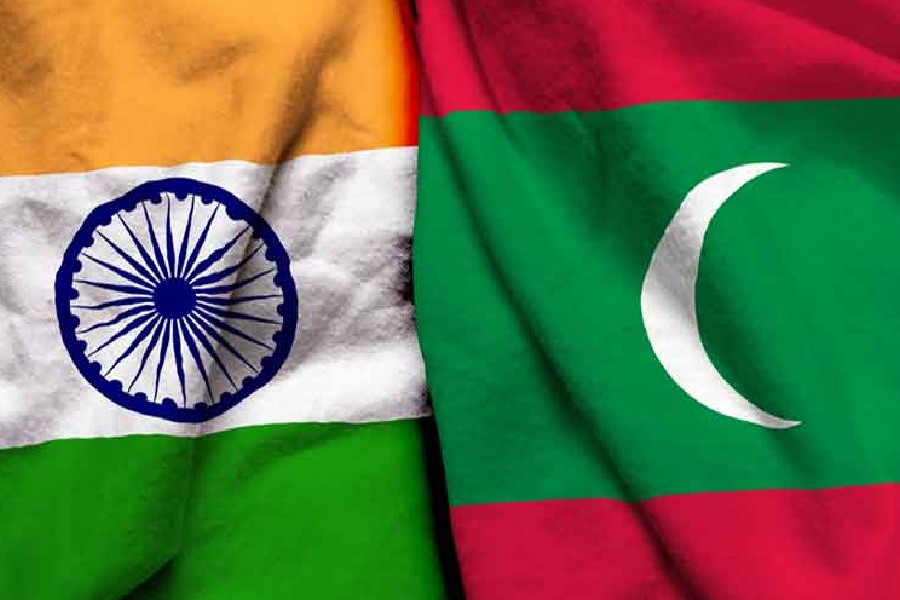Maldivian Foreign Minister Moosa Zameer on Saturday said India's gesture to renew the quota to allow the export of certain quantities of essential commodities for his nation signifies the longstanding bilateral friendship and the commitment to further expand trade and commerce.
India allowed the export of certain quantities of essential commodities for the year 2024-25 at the request of the Maldives government, the Indian High Commission said here on Friday.
Announcing the move through a post on social media platform X, the Indian High Commissioner said that this was being done “under a unique bilateral mechanism” under which the quotas for each of these items have been revised upwards.
“The approved quantities are the highest since this arrangement came into effect in 1981,” the notice by the mission said.
Zameer took to X to thank India for the move.
"I sincerely thank EAM @DrSJaishankar and the Government of #India for the renewal of the quota to enable #Maldives to import essential commodities from India during the years 2024 and 2025," Zameer wrote.
"This is truly a gesture which signifies the longstanding friendship, and the strong commitment to further expand bilateral trade and commerce between our two countries," he said.
External Affairs Minister S Jaishankar responded to Zameer's post, saying India stands firmly committed to its Neighbourhood First and SAGAR policies.
Security and Growth for All in the Region (SAGAR) is India's policy or doctrine of maritime cooperation in the Indian Ocean region.
India's 'Neighbourhood First' Policy underlines the renewed primacy that the country seeks to attach to its neighbouring countries.
The announcement for the renewal of the quota comes amidst a diplomatic row between the two countries since November last year when President Mohamed Muizzu, known for his pro-China leanings, within hours of taking the oath demanded India to repatriate its 88 military personnel from his country.
The relations further deteriorated when three Maldivian officials made crass comments after Prime Minister Narendra Modi posted photos and videos of the Lakshadweep Islands resulting in a heavy backlash by Indians, including many celebrities. #BoycottMaldives campaign resulted in a significant decline in Indian tourists to the island nation too.
The 1981 India and Maldives trade agreement provides for the export of essential commodities.
According to the records from the Indian High Commission, growing from modest beginnings, India-Maldives bilateral trade crossed the USD 300 million mark for the first time in 2021, which further crossed the USD 500 million mark in 2022.
According to Friday’s announcement, there has also been an increase of five per cent in the quotas for eggs, potatoes, onions, sugar, rice, wheat flour and dal (pulses).
Last year as well, India continued the export of rice, sugar and onions to the Maldives despite a worldwide ban on export of these items from India.
"India remains strongly committed to supporting human-centric development in the Maldives, as part of its 'Neighbourhood First policy,” it said.
The quota for river sand and stone aggregates, crucial items for the booming construction industry in the Maldives, has been increased by 25 per cent to 10,00,000 MT each, it added.
Surrounded by the ocean, the islands in the Maldives and the many atolls don’t have enough river sand to support their construction industry, hence the need for importing sand and stone aggregates to the country.
Except for the headline, this story has not been edited by The Telegraph Online staff and has been published from a syndicated feed.










